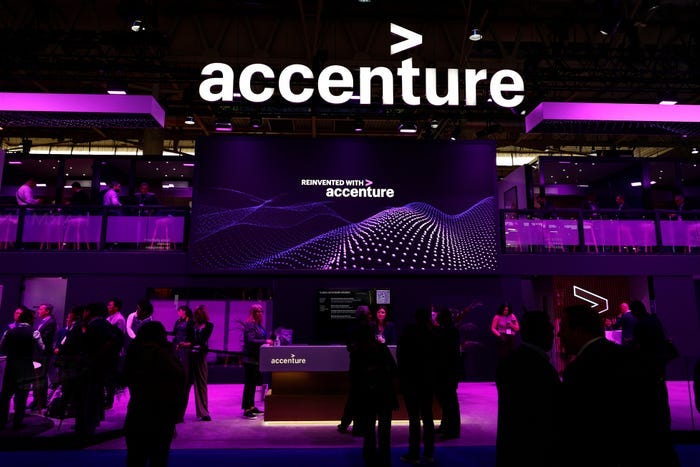Is AI really to blame for Accenture's layoffs?
Accenture laid off 11,000 people and blamed AI. Do you believe them?
Accenture’s recent layoff were a big headline because of the big number. Over 11,000 positions shed in just three months. The consulting company is explicitly calling out AI as a direct cause of this, which really got my attention.
Some subscribers expense this newsletter to their learning and development budget. If you have such a budget, here’s an email you could send to your manager. If you’re not a full subscriber, you missed several recent deep dives into tools like Claude Code and Codex.
Accenture’s AI restructuring
Last month, Accenture announced a six‑month “business‑optimization program” that would eliminate more than 11,000 jobs. Their CEO, Julie Sweet, attributed the cuts to the company’s shift toward generative and agentic AI. She described AI as reshaping clients’ demands and driving the need for new skills: advanced AI has captured the attention of the C‑suite faster than any technology in two decades, and leaders must “rotate the workforce to align with client demand for AI‑driven solutions”.
The company is also investing in teaching “agentic AI” to more than 70,000 employees, which seems generous until they clarify that they’re “exiting roles where reskilling isn’t viable.” The CEO was clear that some positions cannot be repurposed quickly. In her words, the company is “exiting people on a compressed timeline where reskilling is not a viable path for the skills we need”
Headcount drop and financial context
The company booked $615 million in restructuring charges in the quarter and expects a total of $865 million. Despite these cuts, Accenture says it’s still experiencing strong client demand - revenue rose 7 % in Q4 2025.
The cuts primarily affected employees whose roles did not align with the company’s push into AI. Accenture hasn’t publicly listed the exact job titles eliminated, but the Business Insider report makes it clear that the people being let go are those the company cannot reskill quickly enough for AI‑centric roles.
In practice, this probably means roles in operations and support functions that are being automated through AI tools, as well as consultants whose skills are outdated for generative‑AI projects.
The real kicker is that these layoffs come after a series of smaller cuts in earlier quarters. In fiscal 2023 Accenture cut 19,000 jobs as part of a separate restructuring, though those cuts were not specifically attributed to AI adoption. The 2025 layoffs are unusual both for the company and for the market because they are explicitly framed as a consequence of AI capabilities.
Understanding the motive
Accenture said generative AI is “expansionary” and a driver of growth, meaning that although some jobs are lost, new ones will emerge from AI work
She insisted that headcount will increase again in FY 2026, but the timing of the cuts suggests other factors at play.
The Economic Times noted that the layoffs came amid “slowing corporate demand” and were part of a broader $865 million cost‑cutting program
Even though revenue grew, CFO Angie Park explained that the business‑optimization plan is meant to align operations with slower growth. In other words, these layoffs also serve to protect margins in a softer demand environment.
Consulting is cyclical. When Accenture’s clients tighten budgets, discretionary projects are among the first to be delayed. Their cutting staff while blaming AI can help reassure investors that the company is proactively adapting rather than simply reacting to a slowdown.
The reality is likely that AI offered Accenture both a justification and a tool to justify workforce reductions. AI does make workers more efficient, but it is also a convenient narrative to rationalize broader efficiency moves.
It isn’t just Accenture!
Accenture is not the only company to attribute layoffs to AI. In 2023–2024 several tech CEOs made similar statements. Shopify’s CEO, Tobi Lütke, told employees during a May 2023 restructuring that AI tools would increase productivity and reduce the need for managers. He framed the layoffs as part of a strategy to “simplify and focus on the main quest,” implying that AI would perform some roles that staff previously handled. The cuts included middle‑management and recruiting roles, while the company invested heavily in AI infrastructure.
Zapier, an automation platform that itself sells AI‑enabled workflow tools, reportedly streamlined its workforce in early 2024 while emphasizing that generative‑AI–powered code and natural‑language tools allowed it to do more with fewer people. CEO Wade Foster said that AI made the company more efficient and reduced the need for certain manual processes.
While AI was a supporting justification for Shopify’s layoffs, it was not the primary cause. Zapier’s workforce is far smaller than Accenture’s, and its self‑professed efficiency gains may not translate to a 779,000‑person consultancy. Accenture’s scale means that even a small percentage of automation can translate into tens of thousands of jobs.
My word of caution for you is that AI may be one factor among many, but it’s worth staying on top of your AI skills. The message is clear. AI will reshape jobs, and those who adapt will find opportunities. Those who don’t, 🤷

